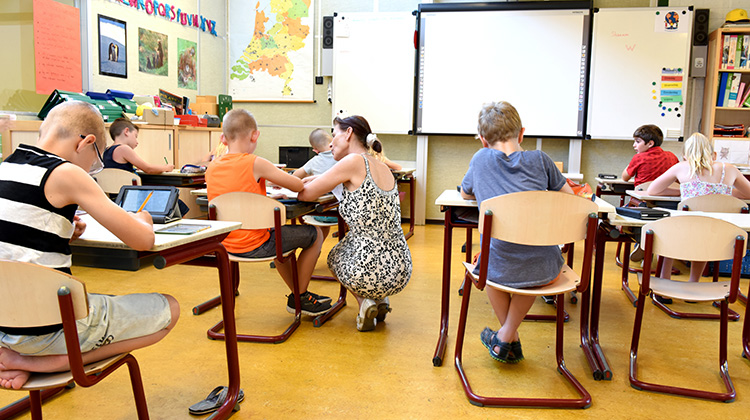COVID boosts teacher regard

An improvement in how we view teachers is down to the pandemic and parents’ direct experience of what it is like to administer a child’s learning.
A nationwide study led by Dr Amanda Heffernan, Senior Lecturer in Leadership, from the School of Education, Culture and Society in Monash University’s Faculty of Education, found a substantial majority of the nationally representative sample of respondents – 72 per cent – trusted that teachers' work was in the best interests of students.
Around half of the 1,012 respondents agreed that teachers were respected by parents (55 per cent) and students (51 per cent). In addition, 58 per cent of respondents agreed with the statement that teachers in Australia prepare students well for life after school. Australian families reported merit in exploring more flexible learning arrangements into the future.
“The findings from the study reflect a high level of public trust for Australian teachers and an awareness that teachers care for the wellbeing of their students. It’s also clear that teachers continue to play an influential role in developing the social and emotional skills of students and this aspect of a teacher’s role should continue to shape the discussions around the teaching profession more broadly,” said Dr Heffernan.
The report identified that 74 per cent of the public valued their past teachers and were able to articulate a positive influence that a teacher had on their lives. Efforts to continue to acknowledge the broad positive influences of teachers’ work will be important to support overall teacher retention.
When asked about what skills should be taught in school, 76.5 per cent of the public felt that problem solving skills were most valued, followed by social and emotional intelligence (67.2 per cent), critical information literacy (65.8 per cent), future career preparedness (65.6 per cent) and resilience (65.5 per cent).
“The findings show that the public’s emphasis on skills that would prepare young people for a changing world is reflective of the importance of preparing young people for a rapidly changing future,” added Dr Heffernan.
Responses also showed that members of the public were aware of the complexity of teachers’ work and the many challenges faced by teachers. Most responses recognised these challenges in the form of student disengagement with learning (80 per cent), mental health and wellbeing of selves or colleagues (85 per cent), complex student needs and diverse needs in classrooms (84 per cent) and administrative demands on teachers’ time (88 per cent).
When looking at the impact of COVID-19 on the public perceptions of Australian schooling, 41.6 per cent of respondents said their perceptions of teachers’ work had improved as a direct result of COVID-19.
A substantial majority of respondents, 91.9 per cent also indicated the importance of students from low socio-economic households to be provided with subsidised or free access to laptops and other devices necessary to complete their schoolwork at home.
The study also found there was perceived merit in a hybrid or more flexible approach to schooling with 76.6 per cent of participants in support of rethinking the way schools operate in the future by creating a more flexible model where students attend school but have the option to take some classes online.
Over half of the respondents, 56.7 per cent, believed the shift to remote learning during COVID-19 was successful in Australia.
The report, titled: ‘Perceptions of Australian schooling: What matters in 2021,’ examined the perceptions of over 1,012 Australians, to develop a deeper understanding of effective teaching and schooling, while taking into consideration the current challenges faced by teachers and schools.
For more information and to download a copy of the report, please visit: https://www.monash.edu/thank-your-teacher
Photo by Arthur Krijgsman from Pexels